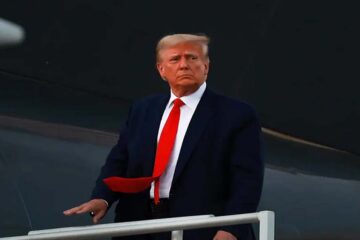Europe’s Unprecedented Defense Investments: Insights from Lithuania’s PM

In the wake of Russia’s invasion of Ukraine, European countries are significantly ramping up their defense capabilities in ways previously deemed unimaginable, according to Lithuania’s Prime Minister, Ingrida Šimonytė.
Unprecedented Actions
Šimonytė highlights that European nations are undertaking defense initiatives that were inconceivable before the conflict in Ukraine. The urgency of the situation has spurred unprecedented levels of defense spending and cooperation across the continent.
Response to Russian Aggression
Russia’s invasion of Ukraine has served as a catalyst for enhanced defense measures across Europe. Concerns about potential Russian aggression against other European nations have prompted increased defense spending and military agreements.
Focus on Baltic States
Countries like Lithuania, Latvia, and Estonia, situated on NATO’s eastern flank and bordering Russian territory, have intensified their defense efforts. Šimonytė cites examples such as Lithuania hosting a permanent brigade of troops from NATO ally Germany, a move previously unthinkable.
Growth in Defense Spending
Since Russia’s invasion of Ukraine in 2021, total defense spending among European Defence Agency member states has risen significantly. Despite this growth, many European countries still fall short of meeting NATO’s target of allocating 2% of GDP to defense.
Lithuania’s Defense Commitment
Lithuania has substantially increased its defense spending, earmarking 2.75% of its GDP for defense expenditures this year. As a staunch supporter of Ukraine, Lithuania emphasizes the importance of providing robust support to its allies in the face of Russian aggression.
Urgency for Support
Šimonytė stresses the crucial role of international support for Ukraine’s defense efforts. However, challenges arise, such as delays in US aid due to political gridlock and limitations in weaponry availability within Europe’s manufacturing capacity.
Economic Implications
Increased defense spending not only bolsters security but also stimulates economic growth. Šimonytė emphasizes that enhanced defense investments send a clear signal to industrial players, encouraging expansion and modernization of production facilities.
Collective Responsibility
Šimonytė underscores the collective responsibility of European nations in addressing security threats. She emphasizes that Europe cannot solely rely on the US for defense, highlighting the need for proactive and self-reliant defense strategies.
In conclusion, Europe’s unprecedented defense investments reflect a paradigm shift in response to evolving security challenges. As the continent grapples with the implications of Russian aggression, Šimonytė’s insights underscore the imperative for collective action and self-reliance in defense matters.
















